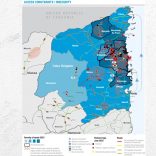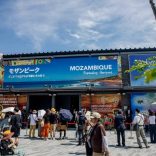Mozambique: At least 26 people murdered by terrorists in June
Manuel Chang extradition case: Does Mozambican civil society really have the upper hand now?

File photo: DW
The power to overturn Manuel Chang’s extradition to Mozambique seems now to rest with Mozambican civil society. It says a decision has not yet been made, though the possibility is being considered.
Although the South African Ministry of Justice has decided to extradite former Mozambican finance minister Manuel Chang to his home country and not to the US, the position is not irreversible. Appeals of various sorts may still be filed.
At this point in time, a Mozambican civil society action is probably the most likely way to reverse the decision. Under South African law, Mozambican civil society may ask the South African Ministry of Justice to review its decision.

Andre Thomashausen, a specialist in international law, confirms that “it is in fact true that any interested party may request such judicial review, in a process similar to the administrative review process under Mozambican or Portuguese legal systems. If a civil society organisation decides to make the request, it will have to be accepted by the court, and the South African Ministry of Justice, like the other party, will have to decide whether or not to oppose the request.”
But Tomashausen points out: “Of course, there must be good reason or justification to show that the administrative decision taken by the former Minister of Justice was based on wrong, unproven or flawed facts.”
And is civil society already moving?

So far, the Public Integrity Centre (CIP), a Mozambican NGO fighting for transparency, is the only organisation closely monitoring the judicial process in a prominent fashion.
The CIP even requested to be a friend of the South African court, which is when an institution provides support for court decisions, offering a better basis on relevant issues. The request was denied by the South African court.
When asked about a possible revision by DW Africa, the CIP referred us to the Budget Monitoring Forum (FOM, Fórum de Monitoria do Orçamento), a platform of which it is a member.
Paula Monjane replied on behalf of the FOM. “We have not yet discussed this prospect, but it may happen. We think that Manuel Chang’s return to Mozambique would not be in the interest of the Mozambican people.”
The forum clearly has the power to challenge the extradition of Manuel Chang to Mozambique, and a discussion among its 21 members would be the next step. But the final decision would rest with the South African Minister of Justice.
The weight of South African domestic policy in the Chang case
South Africa’s domestic policy may be decisive in the decision, says Tomashausen, recalling that relations between South Africa and the US are not at their best, with frequent criticism of President Cyril Ramaphosa in Washington.
Could Ronald Lamola, who recently took office, make the same decision as his predecessor, Michael Masutha?
Thomashausen leaves the question open. “It cannot be excluded, but then an effort must be made to give a motivation that would be correct and in line with what is provided for in the extradition agreement and it is possible that the argument may be different and the decision remains the same.”
“It is also a matter of opportunity, and I have said before, South Africa has no interest in being seen as a country that backs big corruption.”
US approach to civil society?

Since the power to request a reversal of Chang’s extradition to Mozambique is supposedly in the hands of Mozambican civil society, some claim that the United States would already have been in contact with its representatives. A civil society action would be costly, according to the specialist in international law.
The US did not appeal the South African justice minister’s decision, although South African legislation provides for such a course of action. Is the US preferring political pressure?
“It is a really key question in this process. Observers found the arguments of American diplomats which began circulating strange: how they thought that since there was no precedent in South African law for such a decision they decided not to risk a defeat in the courts, but it is an easy argument because South Africa has many antecedents,” Thomashausen replies.












Leave a Reply
Be the First to Comment!
You must be logged in to post a comment.
You must be logged in to post a comment.